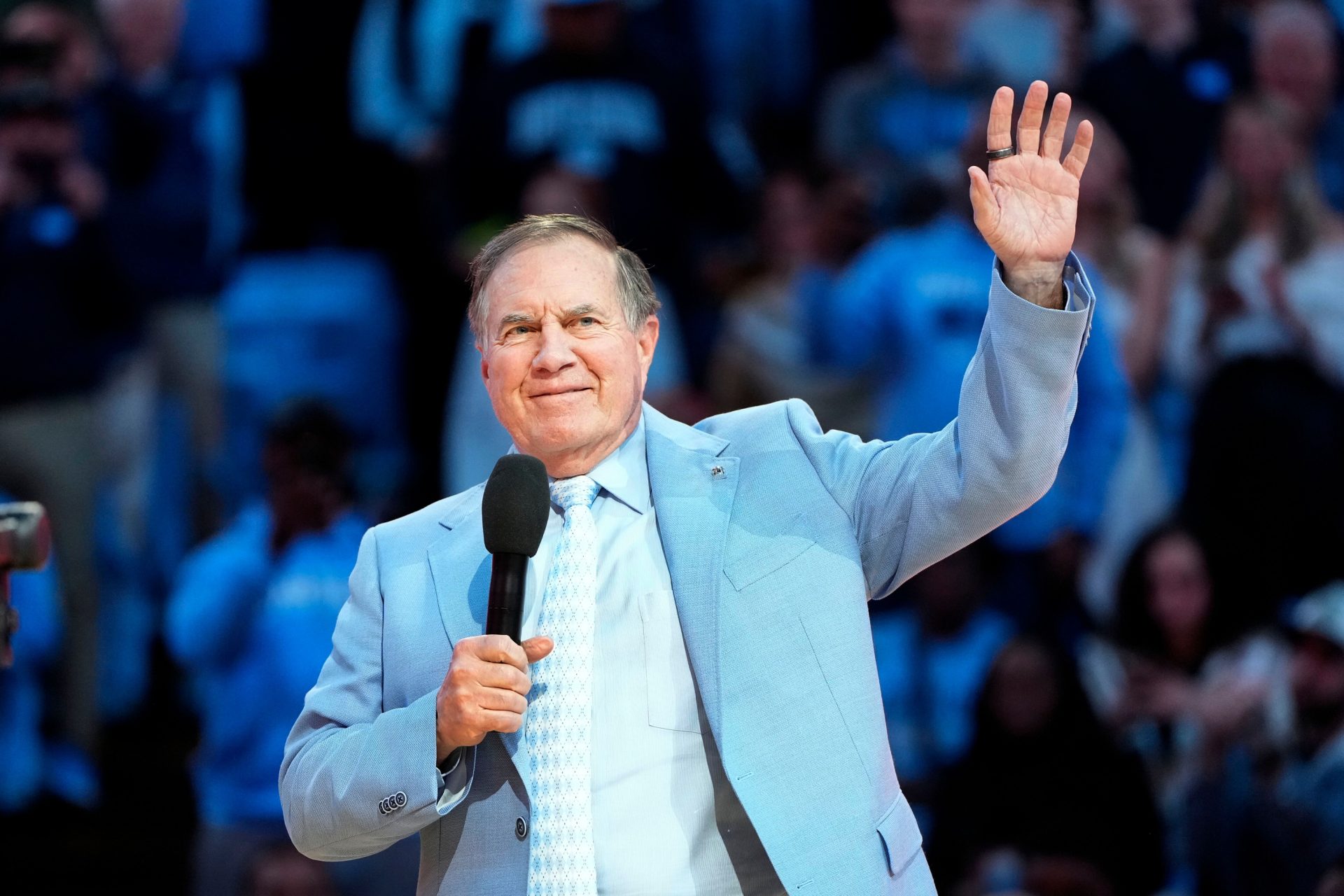Legendary former NFL and current North Carolina Tar Heels coach Bill Belichick, renowned for his strategic mastery and six Super Bowl victories with the New England Patriots, recently opened up about his transition to coaching in college football.
In a revealing interview, Belichick shared insights into the unique challenges and differences he anticipates facing outside the professional league.

Bill Belichick’s Take on the College Football Coaching Landscape
Belichick, now turning his attention to the college game after decades at the NFL level, has pinpointed a major distinction: the scale and complexity of the playbook. Speaking on the College GameDay Podcast, Belichick offered his candid thoughts on what sets college football apart.
Belichick noted: “I think it’ll probably be less volume. Fewer plays, fewer calls, fewer adjustments, but you’re looking at fewer on the other side too. It’s just not as expansive, quite as much.”
He attributed much of this difference to the experience level of the players, especially at the quarterback position. College quarterbacks, Belichick explained, often have only a year or two of experience compared to NFL veterans like Tom Brady, Patrick Mahomes, and Aaron Rodgers, who have “double-digit years of experience, can do a lot.”
He added, “In college, you get a four or five-year player. That guy’s really got a big leg up on a kid with a year or two of experience.”
The legendary coach also emphasized that, despite these differences, success in college football still comes down to fundamentals. “I think it will be whichever team plays well fundamentally. Big plays and close games, which are a lot in this conference. This is what it’s gonna come down to,” he elaborated.
From NFL Tactics to College’s Broader Responsibilities
Belichick’s transition to college football is not just about adjusting to a different playbook or less experienced players—it’s about embracing a fundamentally different coaching environment.
In the NFL, coaches like Belichick pore over Xs and Os, crafting game plans and making midgame pushes and shoves to extract the best performance from hardened professionals. But in college, that role stretches well beyond the field.
Coaches at the college level are bogged down by the complex web of responsibilities that they are entrusted to, which includes recruiting, ensuring eligibility, and changes in NCAA rules.
Recruiting is a yearlong process; coaches and their staff hit the road to find talent. High school court athletes are forced to vie with dozens of other programs for the same players.
This is in stark contrast to the NFL, where the talent acquisition process is built around the draft and free agency, and coaches have little direct involvement in scouting prospects until they arrive in camp.
Belichick himself has admitted he needs to be flexible. He spoke about his ideal college program on “The Pat McAfee Show” and also mentioned how players in his program would pursue the NFL as a career, but would learn about life as well.
But he also understands that he might need to dial down his intense style, which has become his calling card, to adapt to the more nurturing environment on a college campus.
And in an era of NIL (Name, Image, Likeness) deals and increased player mobility, today’s college athletes are more empowered and independent than at any other time — something else Belichick must take into account as he builds his program.
New data underscores the increasing complexity of college coaching. In four years alone, more than 2,100 on-the-field coaches have switched jobs, a sign of both the high turnover and the mounting pressures of the job.
The pipeline of coaches moving from the NFL to college has also slowed, what with so many attracted to the more efficient lifestyle and the offseason flexibility the NFL can provide.
KEEP READING: 2025 Way-Too-Early College Football Top 25 Power Rankings
Ultimately, Belichick’s success in college football will depend not just on his legendary football IQ but also on his ability to adapt to these broader, more multifaceted responsibilities and connect with a new generation of student-athletes.
College Sports Network has you covered with the latest news, analysis, insights, and trending stories in college football, men’s college basketball, women’s college basketball, and college baseball!

